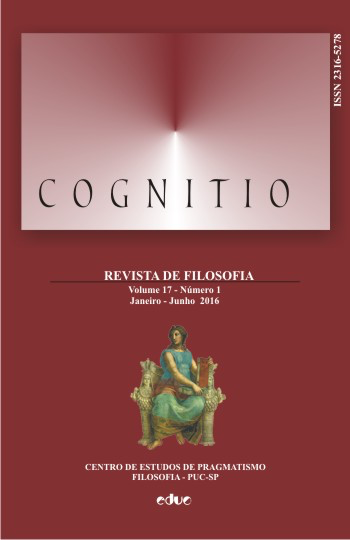Atingindo a realidade através da percepção: Peirce e o realismo científico
Palavras-chave:
Realismo, Ciência, Percepção, Juízo, Pragmatismo, Sinequismo.Resumo
Este artigo explora a capacidade das teorias perceptivas e realistas de Peirce para enfrentar alguns dos principais desafios do realismo científico. Embora sugira que o problema da indeterminação de teorias científicas possa não admitir uma solução peirciana (DE REGT, 1999), argumentarei que Peirce pode dar um suporte inovador para o realismo científico ao abordar algumas de suas questões fundamentais. Minha hipótese principal é que a teoria perceptiva de Peirce – e, particularmente, a interpretação de Aaron Wilson dessa teoria (WILSON, 2012) – pode nos prestar um importante esclarecimento sobre as seguintes questões: (i) como poderemos explicar uma realidade que independe da mente? (ii) como poderemos explicar o sucesso da ciência? e (iii) como poderemos explicar o conhecimento de entidades não observáveis? Argumentarei que Peirce oferece contribuições perspicazes para (i) e (ii), embora apresente apenas um fraco argumento para (iii).Métricas
Carregando Métricas ...
Downloads
Publicado
2016-12-27
Como Citar
Dostie Proulx, P.-L. (2016). Atingindo a realidade através da percepção: Peirce e o realismo científico. Cognitio: Revista De Filosofia, 17(1), 55–72. Recuperado de https://revistas.pucsp.br/index.php/cognitiofilosofia/article/view/30213
Edição
Seção
Artigos Cognitio









